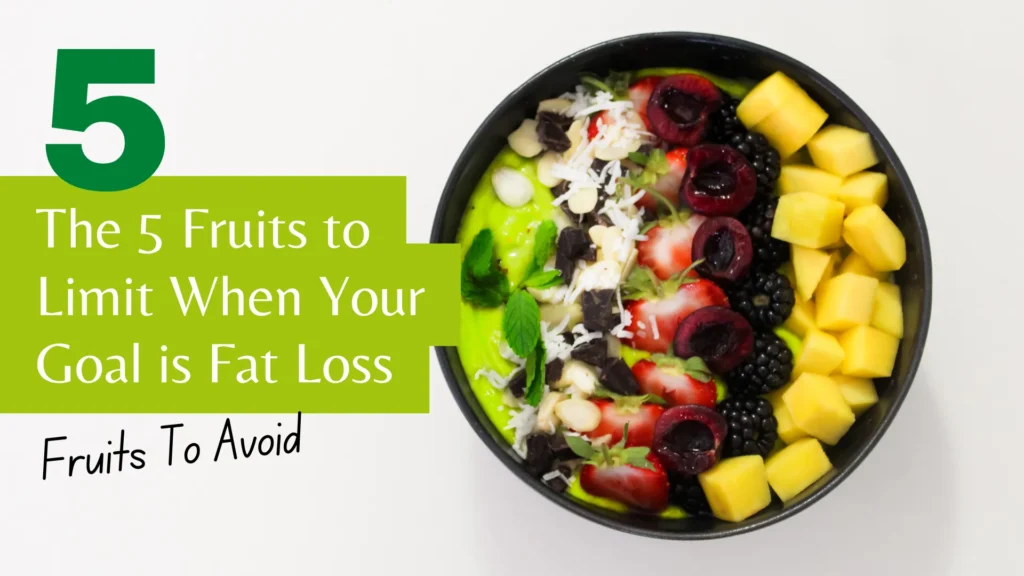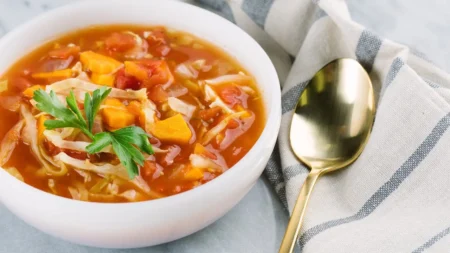Struggling on your weight loss journey can be incredibly frustrating, and you might wonder if there are fruits to avoid for weight loss. You are diligently eating salads, skipping desserts, and choosing what you believe are healthy snacks.
Yet, the numbers on the scale remain stubbornly high. This common roadblock can make you question everything, even the goodness of natural foods. The reality is, for effective weight management, understanding that not all fruits have the same impact is crucial. This insight could be the key to unlocking your progress.
This guide is designed to empower you with knowledge, not to create a list of forbidden foods. We believe no natural food is inherently “bad.” Instead, our goal is to illuminate why certain delicious and nutrient-rich fruits might be subtly slowing down your weight loss.
By exploring their sugar content, calorie density, and effect on your body, you will gain the confidence to make smarter, more strategic choices that perfectly align with your health and weight loss goals.
Quick Overview: Key Factors in Fruits for Weight Loss
| Feature | Benefit for Your Weight Loss Journey |
|---|---|
| Natural Sugars (Fructose) | Provides quick energy but can easily contribute to a calorie surplus if consumed in large amounts. |
| Calorie Density | Some fruits contain more calories per gram, which can impact your daily total calorie intake. |
| Fiber Content | High-fiber fruits are excellent for promoting fullness and satiety, helping you consume fewer calories overall. |
| Water Content | Fruits with high water content increase hydration and help you feel full with minimal calories. |
| Portion Control | Understanding and managing serving sizes is the most critical factor for enjoying any fruit without hindering your diet. |
Are There Truly Fruits to Avoid for Weight Loss?
Let's address the main question head-on. When considering fruits to avoid for weight loss, it is vital to understand that no fruit is your enemy. Every fruit that grows from the earth offers a wealth of essential vitamins, powerful minerals, and protective antioxidants. The conversation isn't about complete elimination. Instead, it’s about strategic moderation and heightened awareness of what you are consuming.
The challenge arises because some fruits have a significantly higher concentration of natural sugars and, consequently, more calories. When you eat these in large quantities, they can inadvertently stall your progress. This makes it much harder to maintain the necessary calorie deficit required to burn fat. You can think of it like selecting the right tool for a specific task. While all fruits contribute to health, some are simply better suited for a diet focused on shedding pounds.
How High-Sugar Fruits Impact Your Weight Management Goals
The way different fruits affect your body is determined by a few key elements. Grasping these concepts will clarify why mindful consumption is so important. It all boils down to how your body processes sugar, even the natural kind found in fruit.
Understanding Natural Sugars and Calories
Fruits contain a type of natural sugar called fructose. Your body efficiently uses fructose for immediate energy. However, a problem occurs when you consume more sugar than your body needs to burn. Your body then stores this excess energy, often converting it into fat. Therefore, fruits with a higher sugar content naturally carry a higher calorie count, which must be factored into your daily intake.
The Role of the Glycemic Index (GI)
The Glycemic Index (GI) is a scale that ranks foods based on how quickly they raise your blood sugar levels after being eaten. Foods with a high GI can cause a rapid spike in blood sugar, which is often followed by a sharp crash. This sudden drop can trigger intense hunger and cravings for more sugary foods. This vicious cycle can easily lead to overeating, making it a significant obstacle to your weight loss efforts.
Why Portion Control Is Your Greatest Ally
This is the single most important principle to remember. You can absolutely enjoy a small, controlled portion of a higher-sugar fruit and continue to lose weight successfully. The issue begins when we consume these fruits mindlessly. Finishing a whole bag of grapes while watching TV or eating a very large mango can add hundreds of unexpected calories to your day. Being conscious and deliberate about your portion sizes is the key to success.
The 5 Fruits to Limit When Your Goal is Fat Loss
Now, let's explore the specific fruits to avoid for weight loss, or more accurately, to limit. Remember, the goal is to be mindful, not fearful. These fruits are still brimming with valuable nutrients. They simply demand a little more attention and careful portioning when you are actively trying to reduce body fat.
1. Mangoes: The Sweet Tropical King
Mangoes are undeniably delicious and a powerhouse of Vitamin C and Vitamin A. They bring a delightful taste of the tropics to any meal. However, they are also one of the sweetest, most sugar-dense fruits available. A single medium-sized mango can contain a staggering 45 grams of sugar or more. This is a substantial amount for a single snack.
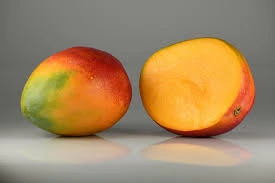
This high sugar content translates directly to a higher calorie count. If you are not careful, enjoying a whole mango can be similar to eating a dessert. While it is a healthy dessert, it can easily push you over your daily calorie target if you aren't tracking your intake closely. Instead of the whole fruit, try enjoying a half-cup serving to satisfy your craving.
| Feature | Benefit |
|---|---|
| High Vitamin C Content | Boosts your immune system and promotes healthy skin. |
| Rich in Vitamin A | Supports healthy vision and proper immune function. |
| Contains Soluble Fiber | Helps aid digestion and can contribute to lower cholesterol levels. |
| Pros | Cons |
|---|---|
| Incredibly delicious and satisfying flavor. | Very high in natural sugar and calories. |
| Excellent source of key immune-boosting vitamins. | Easy to overeat due to its sweet taste. |
| Provides a quick and natural energy boost. | Can cause a significant blood sugar spike. |
| Versatile in smoothies, salads, and salsas. | Lower in fiber compared to other fruits. |
2. Grapes: The Easy-to-Overeat Snack
Grapes are another fruit that requires caution on a weight loss plan. Because they are small, sweet, and convenient, they are incredibly easy to overeat. It is very simple to sit down with a large bunch and finish the entire thing without a second thought. This type of mindless snacking is precisely where the calories and sugar can quickly accumulate.
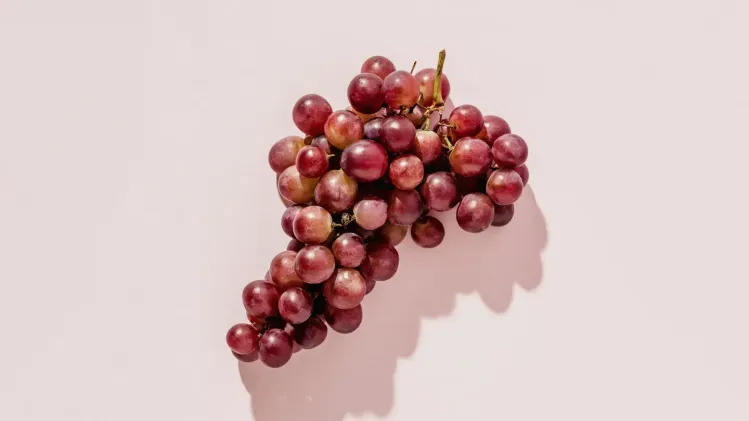
Just one cup of grapes contains approximately 23 grams of sugar. While they do provide beneficial antioxidants like resveratrol, the sugar adds up very quickly. Moreover, because they don't contain much fiber or protein, they are not very satiating. This means you might find yourself feeling hungry again shortly after eating them, leading to more snacking.
| Feature | Benefit |
|---|---|
| Rich in Antioxidants | Contains resveratrol, a compound known to be beneficial for heart health. |
| Convenient Snack | Very easy to pack and eat on the go without any preparation. |
| Good Source of Vitamin K | Plays an important role in blood clotting and maintaining bone health. |
| Pros | Cons |
|---|---|
| Convenient and requires no peeling or cutting. | Extremely easy to overeat due to their small size. |
| Contains powerful, heart-healthy antioxidants. | High sugar content for a small volume. |
| Hydrating due to their high water content. | Low in fiber, leading to poor satiety. |
| A popular snack for both kids and adults. | Can cause rapid blood sugar fluctuations. |
3. Cherries: A Sweet but Potent Treat
Cherries are often praised for their potent anti-inflammatory properties and can be a wonderful summer treat. They are delicious and offer unique health benefits. However, much like grapes, they are quite high in sugar. A single cup of pitted cherries can contain nearly 20 grams of sugar. This makes them one of the sweeter fruits you can choose.
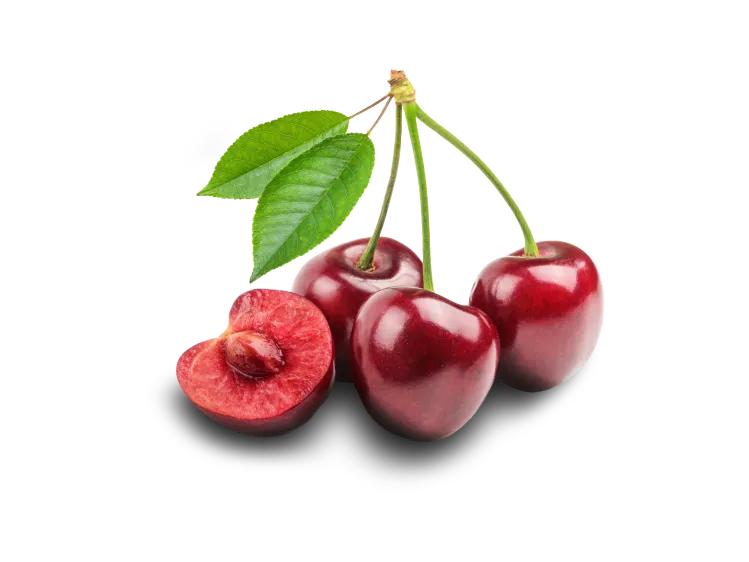
While cherries are certainly a much better choice than a processed candy bar, they should still be enjoyed with moderation in mind. If you are tracking your sugar intake closely for weight loss, you will want to measure your portion carefully. This practice ensures you receive their anti-inflammatory benefits without the excess sugar that can stall your progress.
| Feature | Benefit |
|---|---|
| Anti-Inflammatory Properties | Can help reduce muscle soreness after exercise and ease arthritis symptoms. |
| Source of Melatonin | Contains natural melatonin, which may help improve your sleep quality. |
| Packed with Anthocyanins | These powerful antioxidants give cherries their vibrant red color and fight oxidative stress. |
| Pros | Cons |
|---|---|
| May help with sleep and reduce inflammation. | Higher sugar content compared to berries. |
| Offers a unique and rich flavor profile. | Seasonal availability can make them expensive. |
| Good source of potassium and Vitamin C. | Can be tedious to pit if eating in quantity. |
| Can be enjoyed fresh, frozen, or dried. | Their small size makes overconsumption easy. |
4. Bananas: The Energy Powerhouse
Bananas are a staple snack for many people, especially for a quick pre-workout energy boost. They are a fantastic source of potassium and are incredibly convenient to eat on the go. However, they are also more dense in calories and carbohydrates when compared to many other fruits. A standard medium banana contains about 105 calories and 27 grams of carbs.
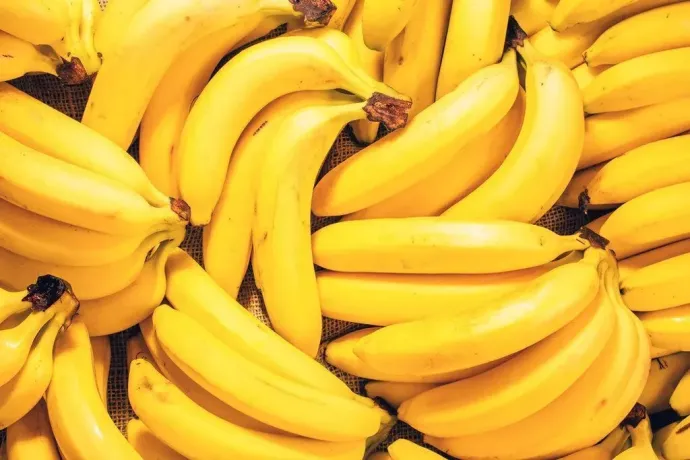
The ripeness of the banana also plays a significant role in its sugar content. A very ripe, yellow banana with brown spots has a higher sugar concentration than a greener, less ripe one. If you love bananas, consider eating them when they are still slightly green. Alternatively, you can limit yourself to using half a banana in your morning smoothie instead of a whole one to manage the calories.
| Feature | Benefit |
|---|---|
| Excellent Source of Potassium | Essential for maintaining heart health and regulating blood pressure. |
| High in Carbohydrates | Provides a quick and sustained source of energy, ideal for workouts. |
| Contains Prebiotic Fiber | Acts as food for the beneficial bacteria in your gut, supporting digestive health. |
| Pros | Cons |
|---|---|
| Great for a quick and convenient energy boost. | Higher in calories and carbs than most fruits. |
| High in potassium for muscle function and health. | Sugar content increases significantly as it ripens. |
| Easy to digest for most people. | Can have a higher glycemic index when very ripe. |
| Very affordable and widely available year-round. | Less hydrating than water-rich fruits. |
5. Dried Fruits: Nature's Concentrated Candy
Dried fruits like raisins, dates, prunes, and dried apricots are perhaps the most important group to limit. This is a crucial category in the list of fruits to avoid for weight loss. The dehydration process removes all the water from the fruit. This leaves behind a small, calorie-dense product that is extremely high in concentrated sugar. They are essentially condensed versions of their fresh counterparts.
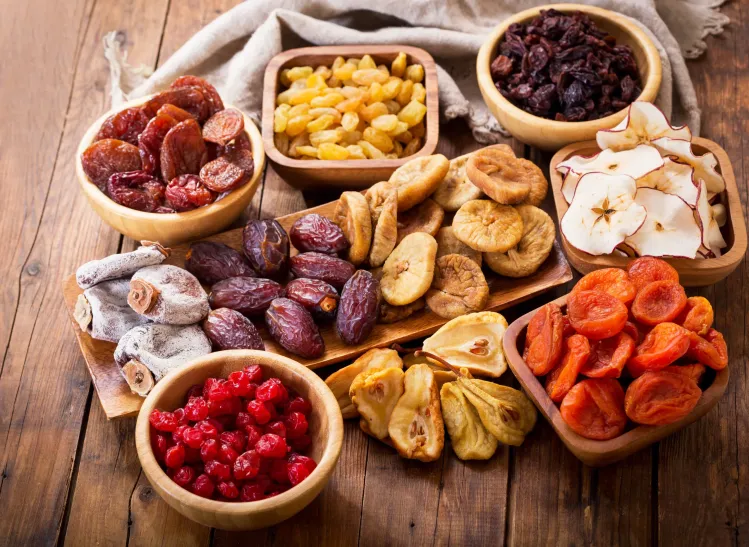
To illustrate, a cup of fresh grapes has around 104 calories. In stark contrast, a cup of raisins contains nearly 500 calories. It is incredibly easy to overeat these sweet snacks. A small handful can pack the same amount of sugar as a can of soda. While they do offer fiber and minerals, their extreme caloric density works directly against most weight loss plans.
| Feature | Benefit |
|---|---|
| Highly Concentrated Nutrients | A small amount can provide a significant dose of fiber and minerals like iron. |
| Long Shelf Life | A very convenient pantry staple that does not spoil quickly like fresh fruit. |
| Natural Sweetener | Can be used in baking and cooking as a healthier alternative to refined sugar. |
| Pros | Cons |
|---|---|
| Long shelf life and easy to store. | Extremely high in concentrated sugar and calories. |
| A good source of fiber and iron. | Very easy to overconsume large quantities. |
| Can be a healthy alternative to candy cravings. | Lacks the water content that promotes fullness. |
| Useful for quick energy during intense exercise. | Often contains added sugars and oils. |
Smart Fruit Swaps for Better Weight Loss Results
Instead of focusing on fruits to avoid for weight loss, let's shift to the delicious fruits you should be eating more of. The best fruits for weight loss are typically high in water and fiber, and consequently lower in sugar and calories. These choices will help you feel full and satisfied while keeping your overall calorie intake well within your target range.
Berries: Your Low-Calorie, High-Fiber Friends
Strawberries, blueberries, raspberries, and blackberries are your greatest allies on a weight loss journey. They are incredibly low in sugar and calories for their volume. Additionally, they are loaded with satiating fiber and disease-fighting antioxidants. A full cup of strawberries, for example, has only about 50 calories and 7 grams of sugar, making them a perfect snack.
Melons: High in Water, Low in Calories
Fruits like watermelon, cantaloupe, and honeydew are composed of over 90% water. This extremely high water content means you can eat a large, satisfying portion without consuming many calories. This makes melons a fantastic way to hydrate your body and satisfy a sweet craving simultaneously.
Apples and Pears: The Fiber-Packed Staples
Apples and pears are fantastic choices because of their high fiber content, particularly pectin. The fiber, which is most concentrated in the skin, helps to slow down digestion significantly. This process keeps you feeling fuller for a much longer period. A medium apple is a perfect, crunchy, and portable snack that can effectively curb hunger between meals.
Final Verdict: Should You Ban These Fruits From Your Diet?
Absolutely not. The primary goal of healthy eating should never be to ban entire food groups. A positive and sustainable relationship with food is built on balance and moderation, not on restriction and fear. The five fruits we discussed still offer immense nutritional value and can be part of a healthy diet.
The Balanced Approach: Moderation Over Elimination
The most important takeaway from this guide is to practice mindful eating and strict portion control. If you absolutely love mangoes, enjoy a few slices instead of the entire fruit. If you enjoy snacking on grapes, count out a small bunch and put the bag away. Balance is the true foundation of a sustainable, healthy lifestyle that leads to lasting results.
Who Will Benefit Most from Being Mindful?
Anyone on a weight loss journey will benefit from applying this knowledge. It is particularly helpful for individuals following a strict calorie-controlled diet. Furthermore, people who need to manage their blood sugar levels, such as those with insulin resistance, PCOS, or diabetes, should be especially mindful of their fruit choices and portion sizes.
Our Final Recommendation
Do not be afraid of fruit. Instead, learn to be smart about your fruit consumption. Prioritize low-sugar, high-fiber options like berries, melons, and apples for the majority of your fruit intake. Enjoy the higher-sugar fruits like mangoes, cherries, and bananas as a deliberate, measured treat. This balanced and intelligent approach will help you successfully reach your weight loss goals without feeling deprived or frustrated.
Frequently Asked Questions (FAQs)
Are fruits making me fat?
No, fruit by itself is not making you fat. Overeating any type of food, including healthy fruits, can lead to a calorie surplus, which is the cause of weight gain. The issue is almost always the quantity and type of fruit being consumed, not the fruit itself.
What is the best time of day to eat fruit?
There is no single “best” time. However, eating fruit paired with a source of protein or healthy fat (like an apple with peanut butter or berries with Greek yogurt) can help stabilize blood sugar levels and keep you feeling full for a longer time.
How much fruit is too much?
For most people on a weight loss plan, aiming for 2-3 servings of fruit per day is a sound guideline. A typical serving is one medium-sized piece of fruit (like an apple) or about one cup of chopped fruit like berries or melon.
Should I choose fruit juice over whole fruits?
No, you should always choose whole fruits over fruit juice. The juicing process strips away all the beneficial fiber, leaving you with a beverage of concentrated sugar and calories. It's very easy to drink hundreds of calories from juice without feeling full at all.
Can I eat these “fruits to avoid” and still lose weight?
Yes, you absolutely can. The non-negotiable key is strict portion control. If you accurately track your calories and ensure you remain in a calorie deficit, you can fit small, measured amounts of any fruit into your diet successfully.
Are frozen fruits as healthy as fresh ones?
Yes, frozen fruits are an excellent and often more affordable option. They are typically flash-frozen at their peak ripeness, which perfectly preserves their valuable nutrients. Just be sure to purchase plain frozen fruit with no added sugars or syrups.
Lamartine is an experienced researcher who creates evidence-based content about health, wellness, supplements, and lifestyle. He offers objective analysis and honest reviews to help readers make informed and safe decisions—without exaggeration, without bias.

